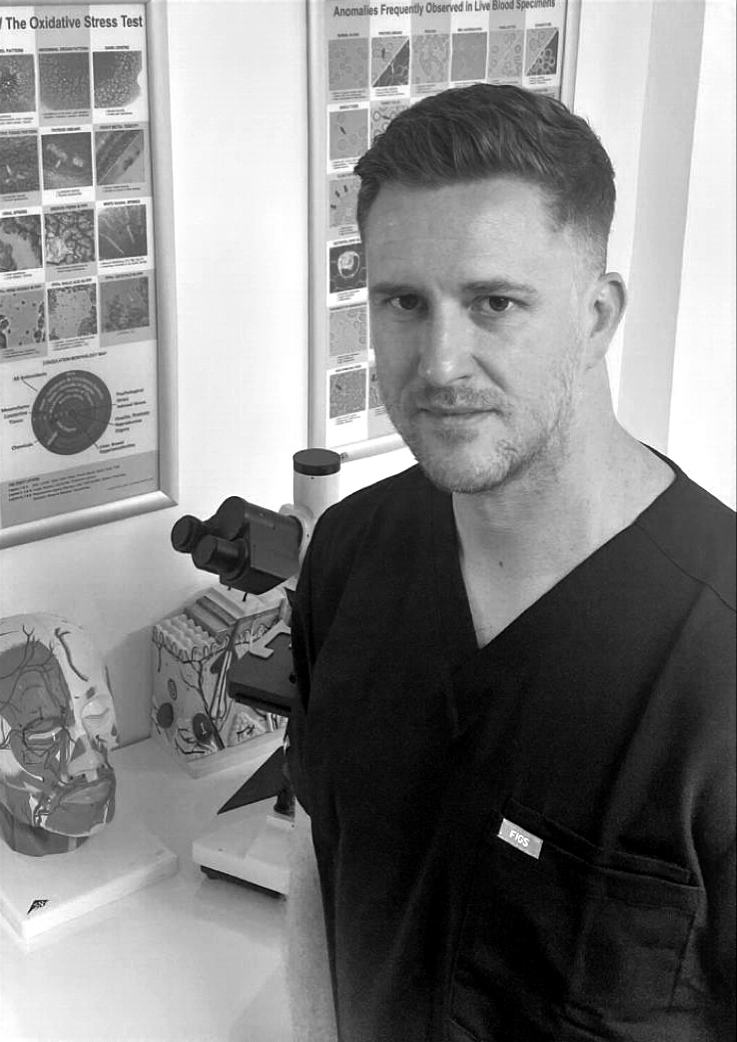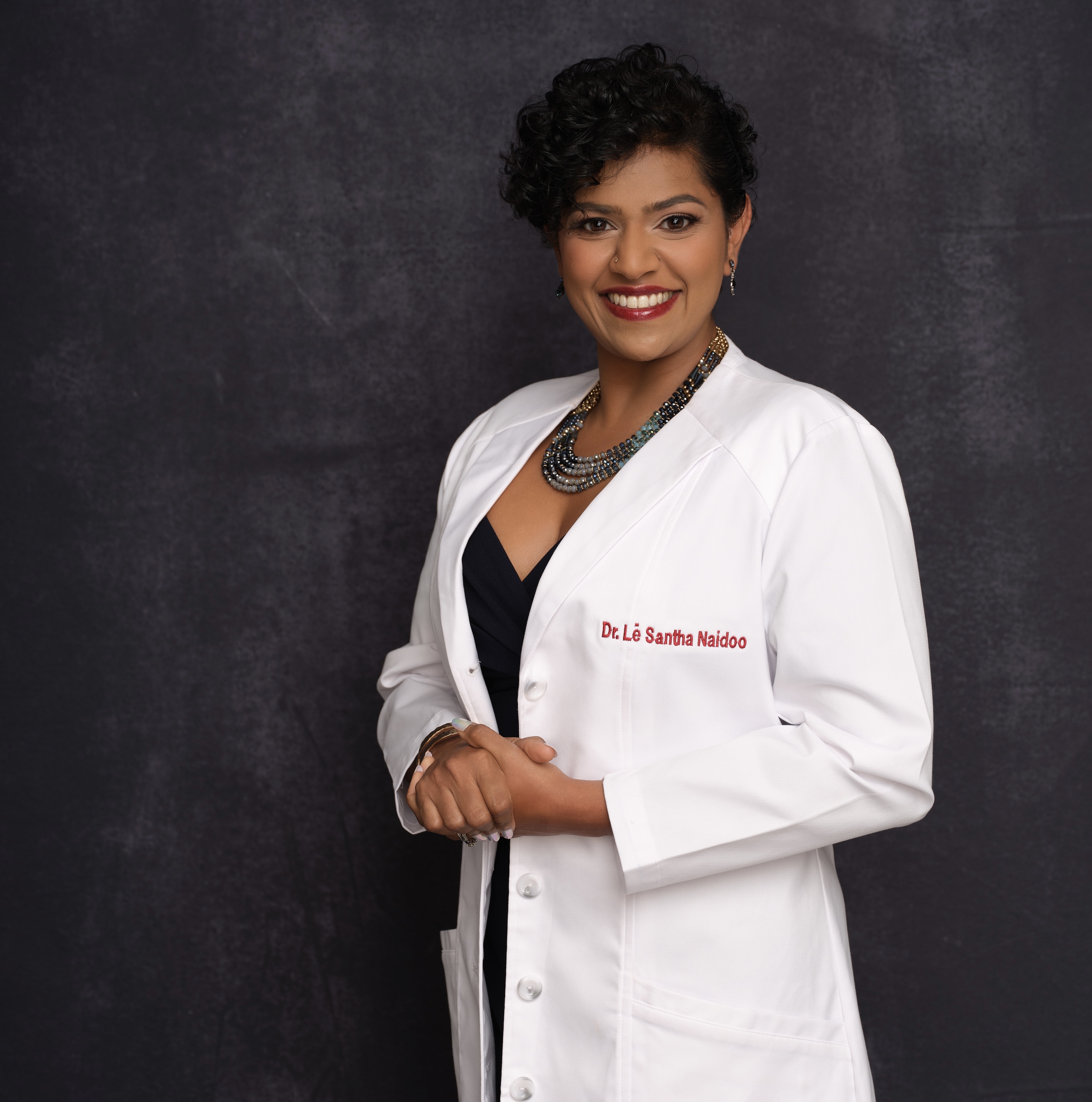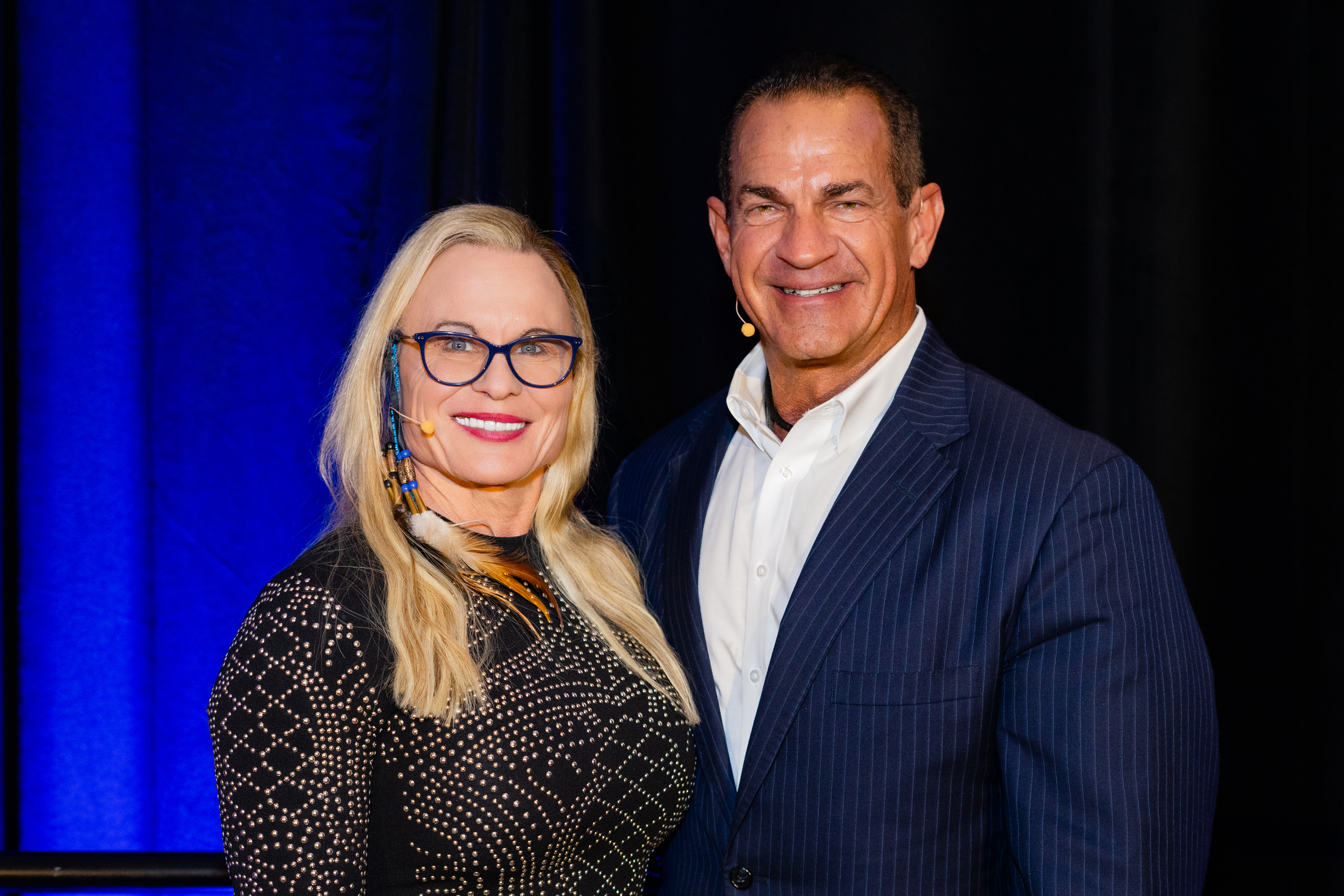The Co-founder of Hinnao Technology Shares the Inspiring Story Behind the Brand

What happens when standardized medicine fails you? For our dear partner Paul, it was a wake-up call to look for better options and help others along the way. Find out how a health scare led to a lifelong passion for supplements and functional medicine, and why low-fat diets are a scam.

Ever wondered how to pick the right supplement? Paul Leadon, the Co-founder of Hinnao Technology is here to help. Not only is he passionate about increasing your longevity and making sure you have access to high-quality, third-party-tested supplements, but he also loves busting myths. Find out more about his health journey in the interview below.
Paul, it’s so nice to meet you. Can you start us off by sharing your chronological age and your GlycanAge?
I'm 47 years old and my GlycanAge is 20.
Oh, wow. It doesn't go any lower than that. Did you know that?
So I've heard. Not gonna lie, feels good to know.
That's amazing. When you look back on your life, when did your journey of biohacking start?
A long time ago, probably over 20 years ago, I picked up something called hookworm and pylori. It left me seriously ill and I couldn't get rid of the parasite or the bacteria.
My doctor put me on some drugs which had lots of nasty side effects. It's even carcinogenic if taken for a long time and can cause loss of bone density, which is something that people often don't realize.
But I wasn't getting any better. If anything, my health deteriorated and I was 31 years old and felt like an old man at that point. I was like that for two years.
I couldn’t live like that anymore, so I found a functional medicine practitioner who was able to cure me with some supplements. Within a month I was retested twice and I got rid of both pylori and hookworm. And from then on, it was really just a journey of self-discovery.
I started looking at supplements and functional medicine. Since I have a background of working in the wellness industry and health care, it came naturally to research and develop the products for Hinnao Technology.
I was taking IVs, glutathione and CoQ10 injections, and I wanted to find a way to be able to take them every day but in a more manageable way.
We make high-stability liposomal supplements which absorb via the mucous membrane. I was looking for ways to optimize myself, but also to increase my health span and overall energy.
So we've made a range, all about cellular rejuvenation. Our product range includes Resveratrol, Glutathione, NAD+, NMN, Curcumin, Methyl B12 & Vitamin D, focused on improving healthspan and longevity. And recently we have launched our Hair Growth formula Anagen
Thankfully, my health has improved immensely. Alongside our supplements, I also use saunas frequently, as well as cold showers and ice baths.
Sounds amazing, I mean it’s far more convenient to take drops than IVs.
Yeah, definitely and they taste so nice. It can be quite hard just doing a single drop.
We've got third-party studies which prove our absorption rate is upwards of 90% after 60 seconds. So we're nearly as good as an IV.
The potency of the products is key. With Hinnao Technology, you're getting the same values as shown on the label. That's the problem with most products today - you do not get the full amount because of oxidation.
Also, the products are sensitive to temperature. You just get 30% and then you may only absorb 3% when you should be absorbing over 90%.
If someone is a complete novice and has never taken any supplements, which supplements do you recommend starting with?
The first thing I always recommend is testing. I would urge anyone to do the basic blood work and take a look at your B12 and vitamin D levels. I'm going on the premise that most people are deficient in vitamin D, especially in northern Europe.
The same goes for B12, which is really important for methylation. You can only get B12 from red meat, but a lot of people don’t eat red meat anymore.
Other than that, I would recommend resveratrol, which is very good for metabolism, brain function, cholesterol and such.
Since you’re in the longevity space, I’m sure using our GlycanAge test was a natural next step.
Yeah, definitely. I met Zorrie, the COO, at the Health Optimization Summit and we had an interesting conversation. Hopefully, next year we’ll collaborate on a third-party study showing the effects of our products on individuals’ biological ages.
GlycanAge is an excellent marker. I’m excited to see it in action in our study. I mean, I was a bit disappointed when I got my results because I can't improve anymore. But obviously, I can still work on maintaining my perfect result.
Exactly. Did you implement any changes after the test?
I have been introducing a few new supplements. A bit of iodine. But for the most part, I have a routine I’ve stuck by for 12 years.
One thing that’s a bit different is, I had my hormones checked and my testosterone is higher than the average 25-year-old.
Why do you think you have such great results?
We can't downplay genetics. I do a lot of breathwork as well. But most importantly, I’ve been consistent over the years. I’ve been exercising, and going to saunas regularly and I like to keep a schedule.
I’m not on any hormone therapy.
I know it sounds stupid, but I was a bit disappointed with the results because it’s good to optimize your hormones for longevity and I was expecting to experiment with TRT, but my results are amazing without any interventions.
Sleep's a big thing as well. If I were to say something to people asking what they can focus on to better their health, it would be sleep.
The reason sleep is number one is - if you don't get enough sleep, your hunger hormone increases. It makes you want to eat bad food. Also, if you don't get enough sleep, you can't exercise properly, you're not going to be organized, and you’ll feel bad.
Once you figure out sleep, make sure you’re not over-exercising, especially if you’re not a professional athlete. Everybody wants to train like an athlete, but it can create more problems for you than benefits.
So what does your workout routine look like?
I do weights, resistance deadlifts and a little bit of running but nothing over 5K. It’s important to stretch properly and I try to stretch every day. I also go hiking and do a bit of boxing.
What does your diet look like? What do you eat in a day?
This is going to be a bit controversial. So recently I've been eating a meat-based diet. I used to juice every day and I was eating a lot of vegetables, but I've increased my meat intake.
I still believe plants are medicine and I still eat them, but not as much. For some people, plants can create too much of a build-up, I’m talking about pesticides, glyphosate and things like that.
So I try to only eat products that are grass-fed, and organic. When it comes to veggies, I tend to eat things like sauerkraut.
I don't think it's that controversial. Was there a specific trigger that led you to eat more meat?
I just started researching it and looking at the archaeological evidence and anthropologists who studied the tribes we still have left and their diets.
They say the more we come away from a natural diet, we seem to pick up more diseases. So I made some changes to my diet. I always felt pretty good with what I was eating because I stuck to whole food. And then I just thought, well, let's just see what happens if I start eating more meat.
I believe everybody should experiment in order to find what truly works for them. I tried it and I felt amazing.
That's great. Do you find it challenging to keep up a healthy lifestyle?
I try not to make it challenging because I've made it part of my career. Don’t get me wrong, there are a lot of people in the wellness industry who don't practice what they preach. I meet a lot of them at tradeshows.
Not only do you have to practice what you preach, but you also have to give off the right energy and the right vibration. When you talk, that comes across with your energy. So I don't find it hard anymore because I changed my mindset.
I get up and go to bed at the same time every day. I get up early so that I can do my routines, and I say to myself - this is part of my job.
That makes it easy for me and I actually enjoy doing it. But I know from working with people as a practitioner that it’s very hard to get into a new routine.
It becomes second nature for people to get up, have a cold shower, stretch, and do red light therapy in the morning, but you need to do it step by step. Doing bite-sized bits at a time if you can.
The great thing about our products is that you can just put them under your tongue in the morning. So for instance, girls say they keep our drops next to their makeup drawer so they don’t forget to use them in the morning.
That’s a good tip. Have you encountered some misconceptions about healthy living?
I think media and marketing are powerful forces in the world, and of course, companies need to be commercial. But the problem is people don’t have the time to educate themselves.
For you and me - this is all we discuss every day. However, it’s important to not make the mistake of thinking that people have a higher level of understanding of wellness and health. There's too much information out there and you need to find the time to curate it.
You have to make sure it's correct, from the right source and if you’re reading a study, you need to research who funded the study.
Do you have any self-care tips that you can share to inspire others?
Stop using your phone after 8:00 pm. Get into a consistent night-time routine as well as a morning routine.
Don't eat past 6:00 pm and brush your teeth right after. When you brush your teeth, you're stimulating yourself, stimulating your nervous system and waking yourself up again. So why would you do that right before you go to bed?
Yeah, well, I never thought about it that way.
Especially if you're using a vibrating toothbrush. It's stimulating the vagus nerve, which is ok in the morning and helps to wake you up, but counterproductive at night.
Are there any health myths that you would like to bust?
Low-fat diets.
Okay. I'm listening.
If you’re on a low-fat diet, you're going to eat more sugar. And we shouldn't be consuming any sugar. Low-carb diets damage cells and activate something called the Randle cycle, which is very bad for our system. It ages you and causes cancer.
We need fat and cholesterol. Cholesterol is a superfood, it's part of our immune system. So cholesterol being bad for you is a myth. We need it to metabolize vitamin D, as well as for our immune system, our cells and for energy.
I love what I'm hearing. :D
That's good. It's been pushed for women a lot, and we're seeing women go into early menopause. I can't say for sure why it happens, but I think it's a number of factors - modern-day stress, low-fat diets, high sugar consumption and alcohol.
This is what women have been sold for the last 60 years, but if you're not eating fat, you're eating more carbs and sugar.
I really think that if we could fix that, people would be spending less on health care.



